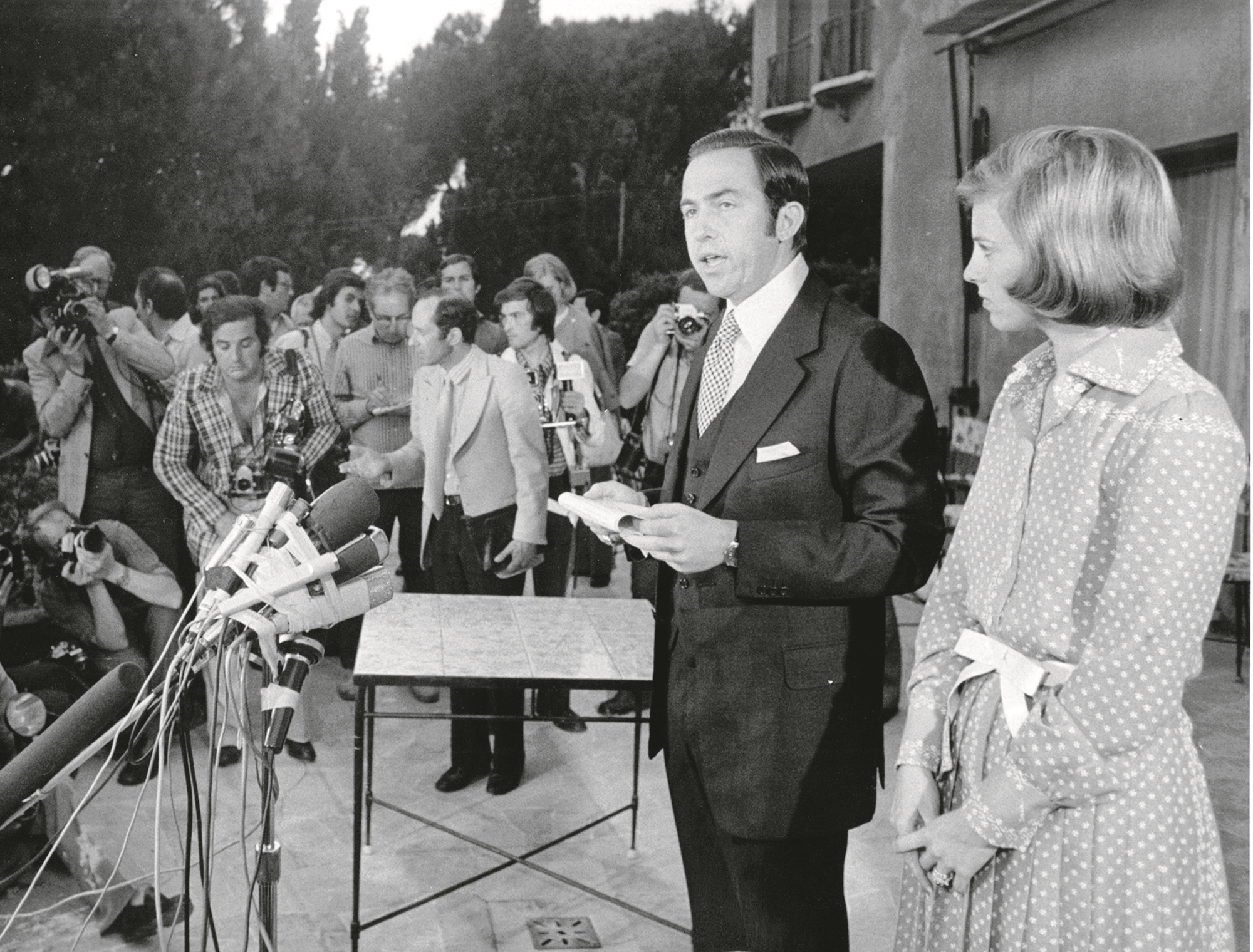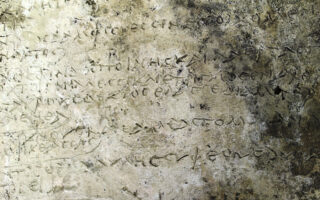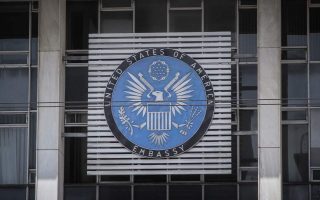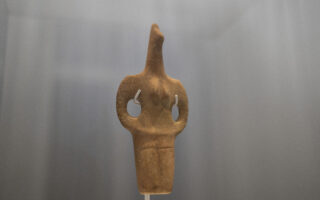The king who didn’t know how he lost the throne
Getting to know Constantine in personal conversations, interviews, as well as from the testimonies of other key figures and American records
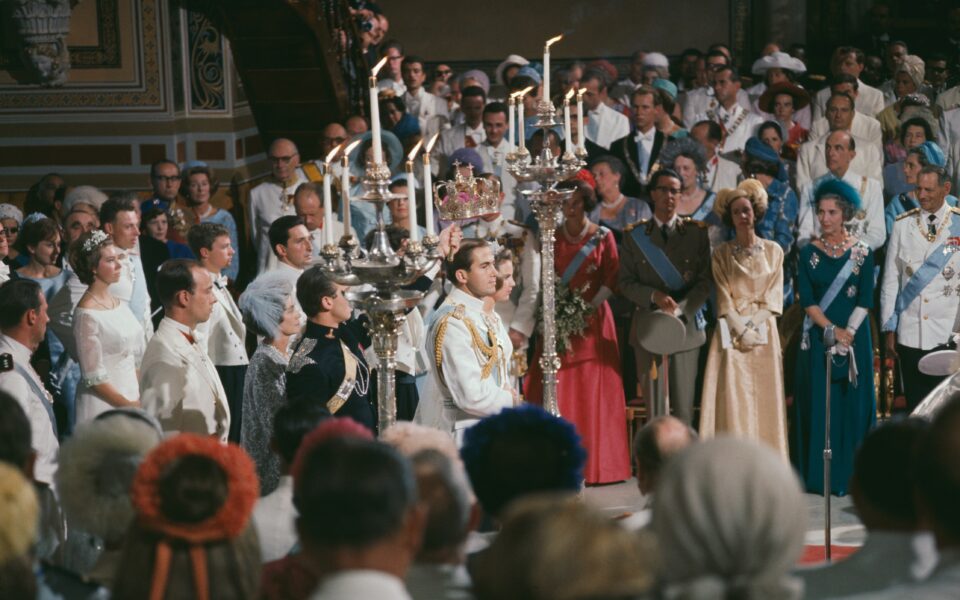
The first time I ever spoke with former king Constantine was shortly after the publication of my book “The Rape of Greek Democracy: The American Factor” in 1997. The phone rang and I heard a deep voice say: “Good evening. This is the king.” It took me a moment to realize who it was exactly, but that call was the first of many conversations about history over the course of many years to come. The reason he had called me was a part in the book where I said that one of the key people feeding information to the American intelligence services from Athens was the US Army attache to the embassy – and one of Constantine’s squash partners – Colonel Joseph Lepczyk. “Are you quite certain that he was connected to the CIA?” he asked me. “He was a very nice and polite young man, you know. We were friends and had the same hobbies, like squash, tennis and sailing,” he added. I explained that I would not have mentioned his role were it not for the fact that “controlled American source” was written beside his name in the declassified State Department records, a description used only for people working for the intelligence services. He seemed amazed by the information and continued to insist that I was probably mistaken.
From that first conversation, I formed the impression – and it became stronger over time – that the former king was affable and also quite gullible, not to say naive. He invited me to visit him at his home in London, which I did a few weeks later. The nostalgia for Greece was pervasive. Portraits of his ancestors hung on the walls and the television played Greek channels nonstop. He was minutely informed about events in the country and did not tire of saying how much he wanted to return. Unaffected, polite and with a self-deprecating sense of humor, he seemed terribly lonely, in a state of exile.
Apart from our long, informal conversations and interviews, I also formed an impression of Constantine from the accounts of others when I researched the turbulent 1960s and 70s. A picture emerged from the descriptions of other protagonists of that era – such as Konstantinos Mitsotakis, Spyros Markezinis, Stylianos Pattakos, Nikolaos Makarezos, the former courtier Charalambos Potamianos, Constantine’s confidant Nikos Farmakis and many, many more. More details were available in the analyses on his role in the events of that time and on his character contained in the American records and from conversations with almost every key player in the American services in the 1964-74 period.
One of the first conclusions is that he came to the throne at a young age, 23, and that he chose to surround himself with flatterers and incompetents, who often served their own private agendas. Perhaps the most important of these close associates was Adjutant-Major Michalis Arnaoutis. As Constantine’s private secretary, his role in crucial events was often catalytic.
The big crisis
When Constantine II was enthroned in 1964, a rather insightful report by the American Embassy in Athens suggested that if the young king assumed a symbolic role, without getting involved in the day-to-day political wranglings, he would likely enjoy a peaceful reign. If, however, he chose to become actively involved in political developments, the monarchy should brace for a turbulent and uncertain future, the Americans warned.
It wasn’t long before the first big crisis erupted, and that was a head-on collision with Georgios Papandreou, which led to the prime minister’s resignation, the so-called “apostasia” of 1965 (also described as the Royal Coup) and political destabilization. The focus of the row was, of course, the vital question of who would control the Armed Forces. Starting with a string of letters he sent to Papandreou, Constantine’s handling of the affair was bad, to say the least. In fact, advisers who had served his father – a monarch known for his mild and moderate manner – were shocked when they read the letters in the press. But Constantine – and this is something I always found incredible – actually believed that he could win the argument with the Papandreous and that the people were on his side. He seemed to have received some assurances that the lawmakers with Papandreou’s Center Union party would give their vote of confidence to the government sworn in by Parliament Speaker Georgios Athanasiadis-Novas on July 15, 1965. He never divulged where these assurances came from.
Constantine had also made the mistake of surrounding himself with a tight social circle of Athenians who conveyed a false sense of public opinion toward the king. “We’d be eating with friends and they’d say: ‘Don’t listen to the naysayers. The people are with you, Your Majesty,’” he once told me.
Looking back, the mistake that cost Constantine his throne lay in his handling of the events of 1965. If he, and the extreme wing of the Greek establishment, had not provoked a rupture, the country would have taken a much different political course. The most likely thing that would have happened is that the Center Union government, under the increasingly feeble leadership of Georgios Papandreou and mounting domestic pressure, would have fizzled out and we’d have had a smooth transition between the two main parties in power. Instead, Constantine’s irresponsible handling of the crisis – in combination with the pretext provided by the radicalization of a part of the political system, under the influence of the socialist Andreas Papandreou – led to the colonels’ coup and the junta.
The generals’ movement
‘Are you quite certain that he was connected to the CIA? He was a very nice and polite young man, you know. We were friends and had the same hobbies, like squash, tennis and sailing’
As the March 1967 elections neared, it became obvious that Constantine was preparing his own military intervention, under the direct supervision of Arnaoutis. It was also known as the “movement of the generals,” with the principals of the colonels’ coup that followed – Georgios Papadopoulos, Nikolaos Makarezos and Stylianos Pattakos – assigned the role of “technocrats,” in that they knew how to plan it and carry it out. Constantine prevaricated and the colonels decided to take matters into their own hands.
Arnaoutis had boasted of having complete control of the military, “down to the last unit,” yet even though he had ample opportunity to see that something was brewing in the ranks of the more junior echelons, he either failed to take it seriously or decided to keep the king in the dark. Makarezos, for example, told me of an incident when Arnaoutis asked to be briefed on the progress of preparations for the generals’ coup at the office of the head of the armed forces, General Grigoris Spandidakis. He picked up a file detailing who would be arrested in the first push and saw his own name at the top of the list. The colonels had accidentally put their own list in the file. Arnaoutis asked what it was all about but did not press the point. Constantine insisted that no one had told him of this incident.
On the night of the coup – April 20, 1967 – Constantine was at the Tatoi estate watching a western with his sister in the summer palace’s movie theater. He started calling his associates as soon as he was informed that a coup was taking place, including Arnaoutis. He heard shots being fired at the other end of the line, as the officers involved were already in the process of arresting the king’s closest aide. Constantine soon realized that absolutely nobody in the military would obey his orders, not even the paratroopers regarded as his greatest loyalists.
What followed was a tragedy, not just for Constantine, but mainly for the country. The colonels paid him a visit at Tatoi, with Pattakos assuming the role of the out-of-control tough guy. Pattakos himself later told me in an interview that “we could have been brought down with a huff and puff in those early hours” of the coup. But Constantine made no such move. He later described as an act of “resistance” the fact that he insisted the three colonels leave their firearms outside the room where the Tatoi meeting took place and demanded that Nikos Farmakis’ name be removed from the list of candidates for a ministry. Farmakis was a close friend of the king and just a few days earlier had assured him: “Your Majesty, you have complete control of the military. You hold it by the…” This was the same man who in the early hours of April 21 personally drove the colonels to the Parliament, where the prime minister’s office was situated.
Constantine’s other act of “resistance,” he told me in our first interview, was in the “tone of his silence.” He posed with the colonels in the first photograph taken after they were sworn into government, he said, in order to convey his displeasure. He frowned in the photograph, when people knew him to always be smiling.
From that night on, Constantine started losing his influence, and his allies. He could not even keep a finger on the pulse of developments. When he met with President Lyndon B. Johnson at the White House two months before his countercoup, he was told loud and clear that the Americans would not intervene on his behalf. They supported the junta now. But the king did not get the message and he later told his American interlocuters: “If you had said it more clearly, I never would have made a move.”
Constantine went into exile and bided his time until the junta collapsed and Konstantinos Karamanlis returned to Athens. He never got over the belief that Karamanlis tricked him into thinking – the last time they spoke, on July 23, 1974 – that he was expected to return to Athens as the king.
Tweaking the narrative
Constantine had two goals after the 1973 referendum that abolished the monarchy: to live in Greece and to defend his reputation. He accomplished the former once the public outcry died down and he could move back to Athens. I remember his enthusiasm at the time and how much he enjoyed recounting stories of people’s reactions when they saw him, and especially people who were opposed to the monarchy. “You should have seen the taxi driver when he realized who I was – and he was a leftist,” was the kind of thing he’d say after a day out in the city. He seemed to have come to terms with his defeat and with losing the throne. But he also wanted to tell his version of the story.
I remain impressed by how consistently he related his version of events – something that is quite common among controversial protagonists trying to rewrite their role in history. He insisted on the same stories, giving the same stock answers. He only digressed sightly when our discussion was more informal, but there were some questions he would never answer, no matter how hard I pressed. Who had assured him that the Novas government would win the confidence vote? Were the MPs paid to support the apostasy government and, if so, by whom? Was he influenced by his mother, as many said, and to what degree?
Constantine was also unable to understand the different forces shaping events or to explain what happened to him. I remember insisting on asking during one of our conversations, “Why do you think you lost the throne?” He eventually stopped to think. I was astonished by his answer: “Perhaps because I said something quite disparaging about Christos Lambrakis at a dinner once, in 1965.”
Looking back, I see a man who lacked the maturity and wherewithal to deal with being in the eye of a political maelstrom with machinations of Byzantine proportions. I see a gracious man, who loved Greece and who never managed to explain – to himself or others – how and why he lost the throne.
The “Greek tragedy,” to borrow the term, was that during the decade when his reign began, the country was steaming ahead economically, socially and culturally. If that decade had proceeded smoothly, we can assume that it would have truly taken off. Instead, the system fell apart and Constantine became a part of a vicious power struggle. Which brings us to the big question for anyone studying history: Do the people lead to the events, or is it the other way around? Would Greek democracy have crashed onto the rocks if someone else was at the helm?
Anyone who knew Constantine well will say that what ultimately counts are the personalities of the people in the starring roles of those dramatic historical events.
